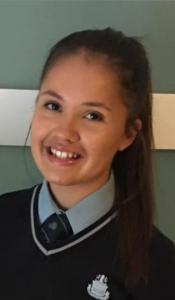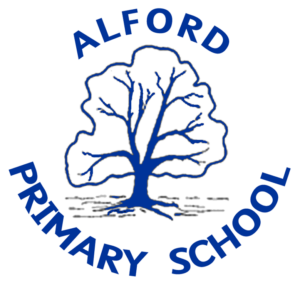Vision Statement
At Alford Primary, we believe that the English curriculum should develop children’s love of reading, writing and discussion. We aim to inspire a habit of reading widely and often, as well as an appreciation of the variety of genres across both fiction and non-fiction, including the full range of media through which it can be accessed. We believe that children need to develop a secure basis in literacy skills, as it is crucial to a high-quality education, giving them the tools they need to participate fully in the next stage of their life. We promote a culture where children take pride in their writing, clearly presenting their work, and are able to adapt their language and style for a range of contexts. We aim to develop children to be confident in the art of speaking and listening, so they can build on existing knowledge, use discussion to clearly communicate their ideas and opinions, and also to use questioning to further their own learning.
EYFS
In EYFS we use the EYFS Development Matters guidance to support children’s learning and development. We deliver adult led ‘Whizzy Writing’ and ‘Reading’ sessions linked directly to the application of previously taught phonics skills. In addition to this, we adopt an ‘In The Moment Planning’ (ITMP) approach as children explore and progress within our carefully planned learning environment. ITMP naturally happens as EYFS practitioners interact with children during child-initiated learning time (COOL Time). In this way, practitioners use quality interactions to draw out children’s knowledge and build on it as it happens. Our EYFS practitioners utilise their skills to be able to see the teachable moment from the child’s perspective, and are skilled enough to know when to intervene and when to stand back and observe. The indoor and outdoor provision provides a range of opportunities for children to practise and develop their Phonics, Reading and Writing skills through planned, purposeful play.
KS1 and KS2
We have a Mastery approach to the Teaching of English, where all children are challenged to work towards a deeper understanding of the knowledge expected for their year group. We follow the NC requirements for each key stage, embedded in a broad and balanced curriculum unique to our school. We aim to inspire an appreciation of the variety of genres across both fiction and non-fiction, engaging children by using the full range of media through which it can be accessed.
Progression documents are in place for Phonics, Reading, Writing, Spelling and Punctuation, which are used to assess progress and gaps in learning; these link explicitly to the end of year / key stage summative statements, and reports to parents. These are available to parents on request.
Reading comprehension is taught through whole class reading sessions, which focus on one or more particular reading domain (for example, word meaning, retrieval, prediction). Throughout school, key reading skills are supported by our very own, helpful guinea pig characters!
Children are still heard to read on a 1:1 / small group basis in KS1 – more frequently if identified as not meeting expectation. In KS2, if pupils are identified as not meeting expectation for their year group in reading fluency or comprehension, they also receive additional support on a 1:1 / small group basis.
Long term overviews are collated to ensure variation and consistency throughout school, with spaced learning supported by familiar language and environment (key vocabulary, displayed learning prompts etc). Children are encouraged to consider how the current area of learning fits in with prior learning and next steps.
For each year group, the curriculum is broken down intounits of work, which generally follow the pattern of reading into writing, and incorporate speaking and listening opportunities (including performance where appropriate). The school is committed to inspiring an appreciation of literature in all its forms, and there is a keen focus on practising these skills across the curriculum, as well as in discreet units as part of English. Every effort is made to link reading and writing to the wider curriculum, where appropriate.
Pupils identified as vulnerable are given additional adult support primarily within quality first teaching, working with support in lessons on the expectations for their year group, wherever possible. Time out of class – particularly during other curriculum areas – is kept to a minimum, and is for the shortest amount of time possible to be effective (usually between 5 and 15 minutes).






